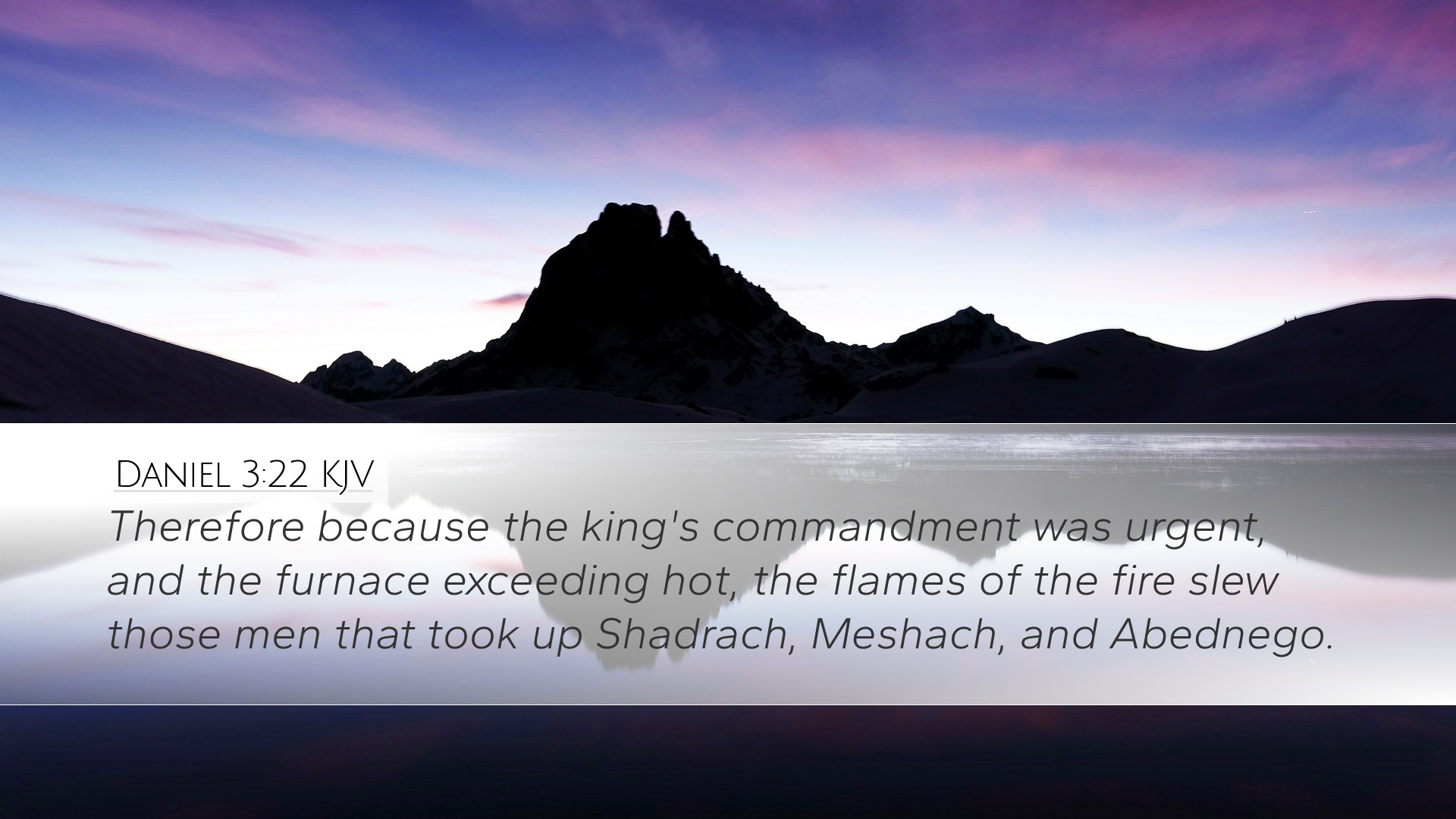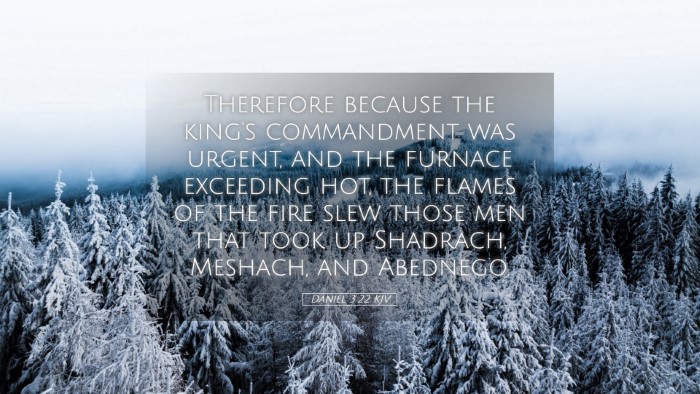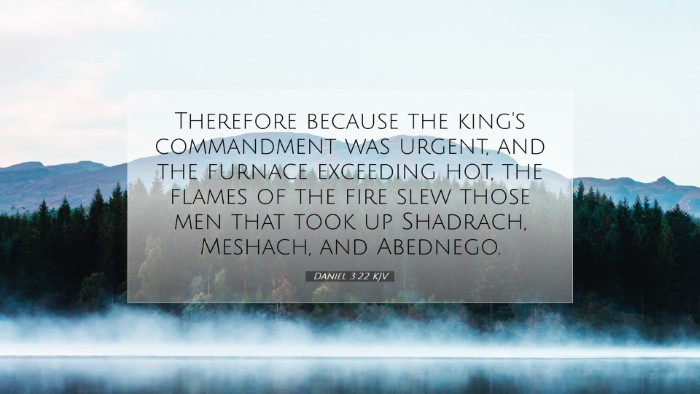Commentary on Daniel 3:22
Verse: "Therefore because the king's commandment was urgent, and the furnace exceeding hot, the flame of the fire slew those men that took up Shadrach, Meshach, and Abednego." (Daniel 3:22)
Introduction
The narrative found in Daniel 3 highlights the trials faced by Shadrach, Meshach, and Abednego in the face of idolatry and persecution. This verse encapsulates a critical moment in the account where the fervent and immediate nature of King Nebuchadnezzar's decree significantly impacts the unfolding events. This commentary synthesizes insights from revered public domain commentaries to enrich the understanding of this scripture for pastors, students, theologians, and Bible scholars.
Exegesis of the Verse
Urgency of the King's Command: The urgency indicated in the phrase "the king's commandment was urgent" (KJV) reflects Nebuchadnezzar's vehement determination to enforce the worship of the golden image he erected. The king's emotional state, driven by anger and pride, is vital to understanding not only his character but also the societal pressure faced by the Jewish youths.
The Intensity of the Fire: The description of "the furnace exceeding hot" implies a supernatural intensity beyond a normal fiery furnace. The imagery used suggests that it was not merely an instrument of death but a symbol of the king's wrath and an extreme test of faith for God’s servants.
Theological Implications
The events surrounding this verse invite profound theological reflection on the nature of faith in dire circumstances. The willingness of Shadrach, Meshach, and Abednego to face the furnace speaks to the essence of faith amidst trials, resonating with the greater theme of divine deliverance.
- Faithfulness under Pressure: As Matthew Henry points out, their faithfulness in refusing to bow to the golden image demonstrates the conviction of true worship. This moment becomes a defining point in their faith journey.
- The Sovereignty of God: The immediate execution of the king's command serves as a backdrop against which God’s sovereignty is further highlighted, as He ultimately controls the outcome, even when circumstances appear overwhelmingly against His faithful ones.
Historical and Contextual Analysis
Understanding the historical context is crucial for a deeper comprehension of this passage. The Babylonian exile presents a picture of God's people in a foreign land, grappling with their identity and allegiance in the face of cultural pressure. The defiance of Shadrach, Meshach, and Abednego is emblematic of Jewish resistance to idolatry, echoing historical patterns of faith amidst adversity.
- Political Climate: The political authority held by Nebuchadnezzar must be recognized; his absolute power and the fear instilled in his subjects amplifies the gravity of the situation faced by the three men.
- Cultural Idolatry: The golden image symbolizes the broader theme of idolatry, prompting followers of God to maintain conviction against cultural and social pressures.
Practical Applications
The account of Daniel 3 presents several practical applications for contemporary readers striving to live out their faith in challenging environments:
- Courage in Conviction: The determination of Shadrach, Meshach, and Abednego encourages believers to stand firm in their convictions, even when faced with severe consequences.
- Understanding Persecution: This passage serves as a reminder that persecution may often arise for standing up for one's faith. It is crucial for the church to prepare for such trials with prayer and encouragement from one another.
- Hope in God's Deliverance: Ultimately, the narrative reveals that God’s deliverance is assured, although it may not manifest in the timing we expect. Trusting in God's sovereignty remains pivotal in the life of a believer.
Conclusion
Daniel 3:22 serves as a pivotal verse that encapsulates the tension between civil obedience and divine allegiance. The insights garnered from public domain commentaries reflect the depth of meaning found within this text, which resonates with fundamental themes of faith, sovereignty, and the nature of true worship. For pastors, students, theologians, and scholars, this commentary provides a framework for understanding the significance of steadfastness in faith during seasons of trial, urging a collective reflection on the transformative power of living out one's convictions amidst a pressing culture.


